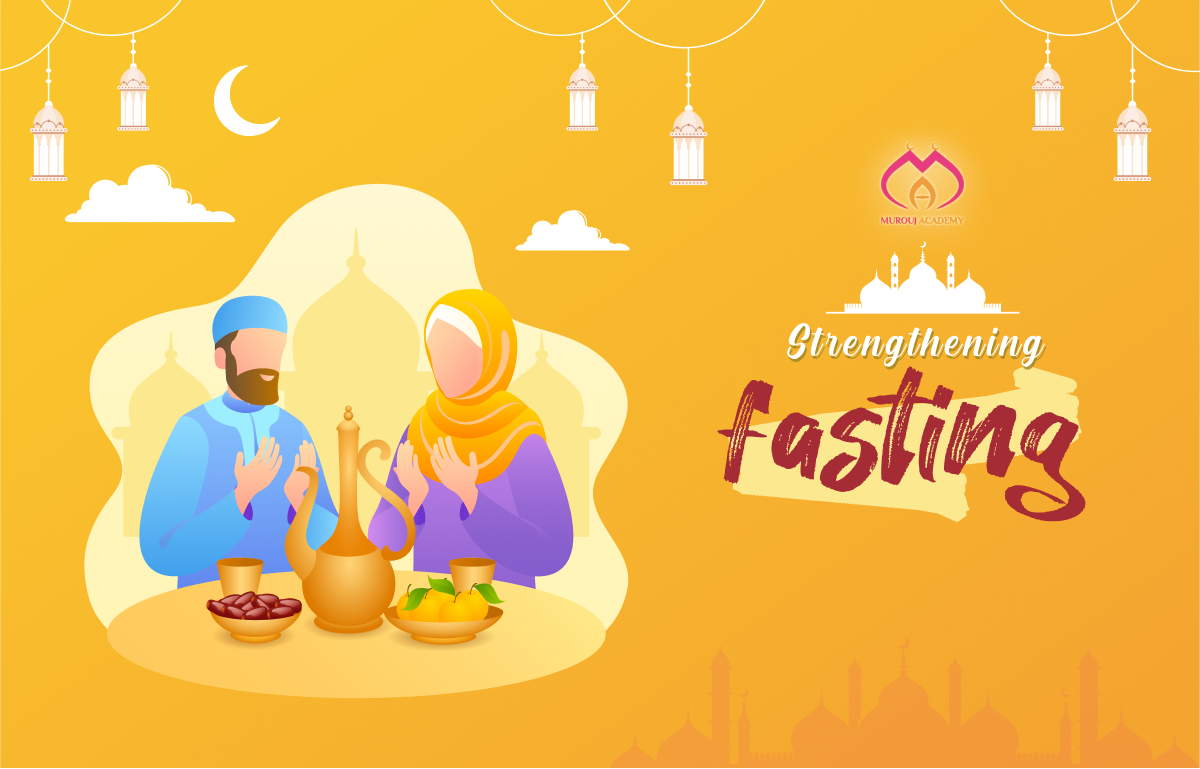If we are not accustomed to fasting throughout the year, the month of Ramadan may present a challenge in the possibility of abstaining from food and drink for long hours, often reaching more than 15 hours. Therefore, adhering to healthy eating habits during the month, and even all the time, helps us to complete the fast without hardship while being able to complete our usual daily tasks.
In the prophetic guidance there are many commands that help us to fast healthy, and we can also seek the help of medical professionals according to our health condition if we suffer from diseases or certain health conditions, and we can only follow an integrated diet and instead of dividing it over the entire day we By dividing it into the breakfast and suhoor meals, while fortifying the system with fluids and plenty of dates, for example.
Prophet Muhammad (PBUH) said,
Nothing is worse than a person who fills his stomach. It should be enough for the son of Adam to have a few bites to satisfy his hunger. If he wishes more, it should be: One-third for his food, one-third for his liquids and one-third for his breath.”
In this article, we review eating habits that can help make fasting easier.
Do not eat too much salty food
It is known that a person’s need for water and fluids in general is stronger than his need for solid foods, and therefore preserving not eating excessively salty foods helps us not to get very thirsty and feel unable to bear it while it requires us to finish our daily tasks or even get up to pray and read the Qur’an.
If your normal diet contains a lot of salt, all you have to do is either replace some salty items with others with a neutral taste or even reduce the amount of salt used during the cooking process itself.
Drink plenty of fluids
When advising anyone to drink plenty of fluids between Iftar and Suhoor, people always forget to stress that the person does not drink too much fluid at once, because he will lose it quickly as well. What is recommended is to divide the fluid intake by the period during which fasting is interrupted to ensure that it is retained for as long as possible.
Hastening to break the fast and delaying the pre-dawn meal
This advice from the Prophet’s guidance helps us to keep the hours of fasting as short as possible. The Muslim does not have to torture himself by delaying breaking the fast even after hearing the call to prayer, with which God permitted him to eat and drink after a day of refraining.
Ibn Hajr, in his commentary on Saheeh al-Bukhari, wrote the following comments on this hadeeth:” .
His [i.e. Imam al-Bukhari’s] statement, “The chapter of hastening the breaking of the fast” – ibn ‘Abd al-Barr said: The ahaadeeth of hastening the breaking of the fasting and postponing the suhoor are authentic and mutawaatir. And reported from ‘Abd al-Razzaaq and others with an authentic chain of narration from ‘Amr ibn Maymoon al-Awdi, “The companions of Muhammad (ﷺ) were the quickest of people in breaking the fast, and the slowest of people on taking the suhoor.”
Sahl ibn Sa’d narrated that the Prophet (ﷺ) said:
The people will remain on good as long as they hasten the breaking of the fast.
[al-Bukhari #1957]
Eat high-quality foods
It does not make sense to spend many hours fasting and then breaking the fast on unhealthy or useless foods such as fast food or frozen foods of unknown origin. At least, breakfast should contain a healthy soup dish, even if the other items on the table do not give the required amount of benefit. . The soup dish is just an example and not limited to, as it can be replaced with the available fruit or vegetable salads, even if it is limited to some leafy vegetables such as watercress and lettuce.
Avoid the causes of obesity during the month
Contrary to what some expect, there are many people who gain a lot of weight during the month of Ramadan, and this is often because they rely on sugars and processed foods to satisfy their craving for food when breaking the fast. This may not only cause weight gain, but it may have undesirable effects at all, such as diabetes or atherosclerosis. Just as we fast for many hours, we should start breaking the fast carefully to prepare our empty stomachs of food to receive a full meal, not to eat everything in front of us without thinking when we hear the call to prayer, and perhaps that is why breaking the fast by eating dates is the best thing for a Muslim because it provides him with the necessary energy quickly But at the same time, it contains natural sugar and does not cause harm.
Fasting does not require a different diet in any way unless you do not follow a healthy diet and it will cause you problems if you follow it during the month of Ramadan. All of them are simple instructions about our pattern of eating, which helps us to maintain a healthy and conscious body throughout the period of worship and fasting.
Since we are talking about food, we mention the Fiqh ruling on eating or drinking forgetfully during fasting, as it does not invalidate a Muslim’s fast and has a soft meaning: It was narrated from Abu Hurairah that the Messenger of Allah (ﷺ) said:
“Whoever eats out of forgetfulness while fasting, let him complete his fast, for it is Allah Who has fed him and given him to drink.”
[Al-Bukhari and Muslim]
May Allah accept fasting, night prayers, and all good deeds from us and from you.





